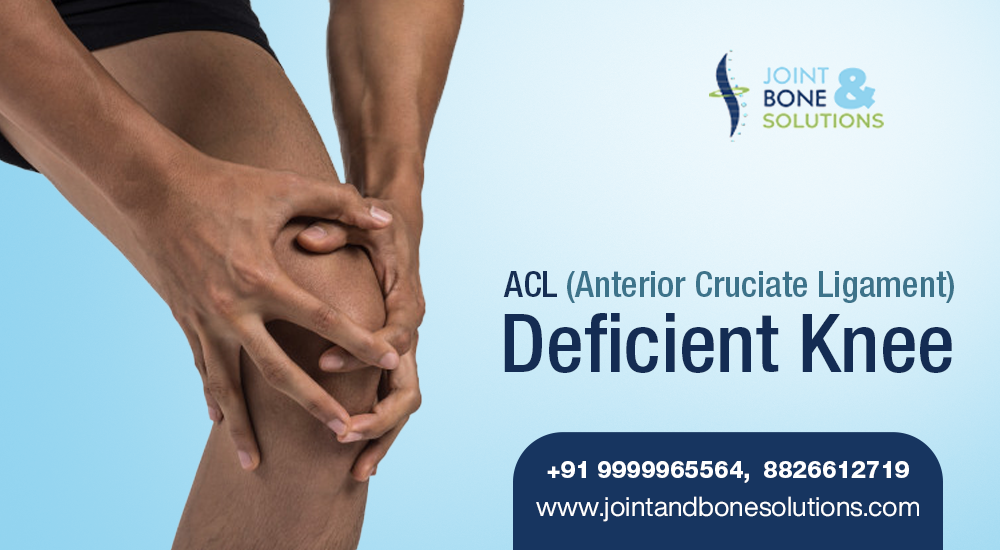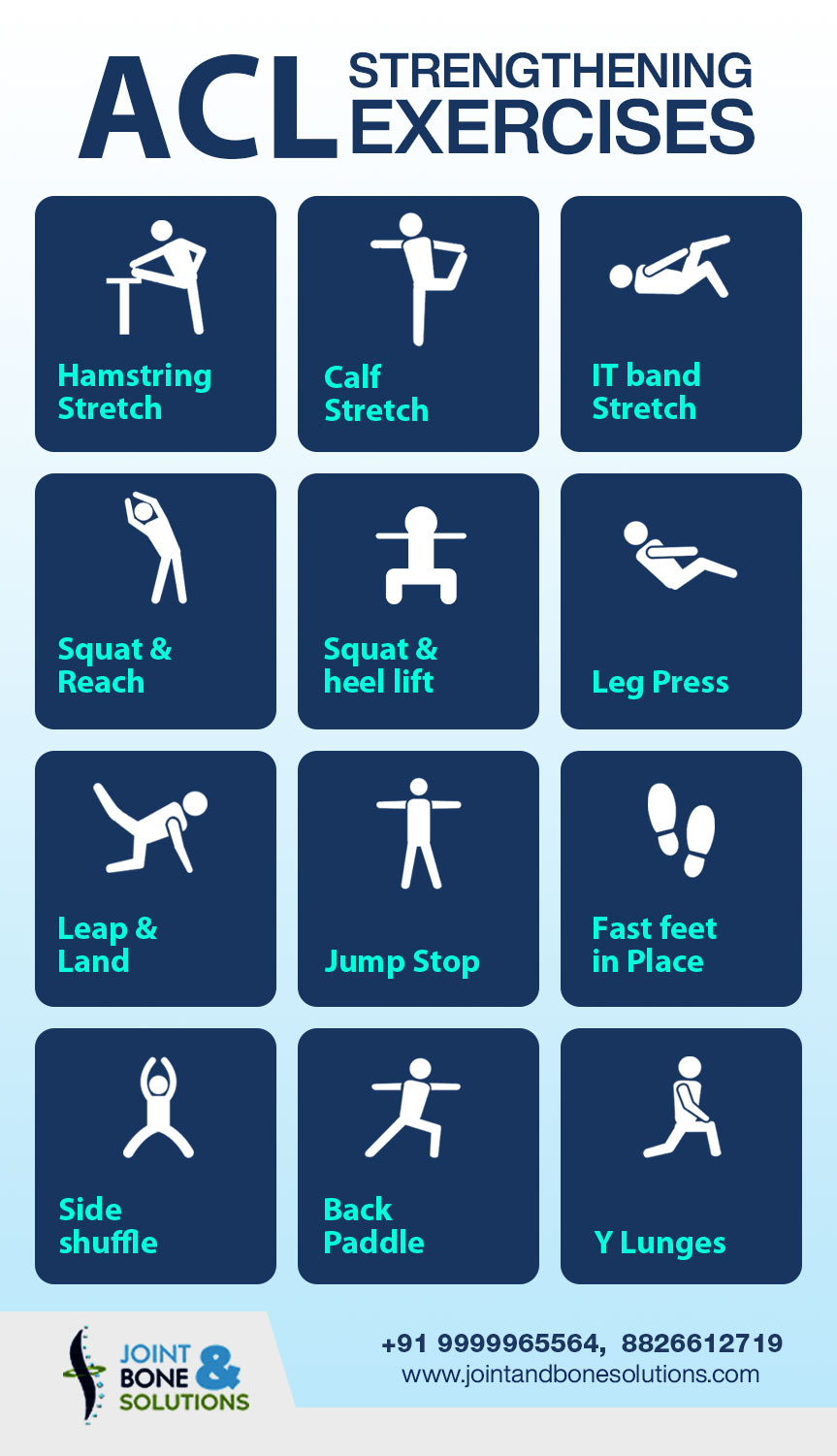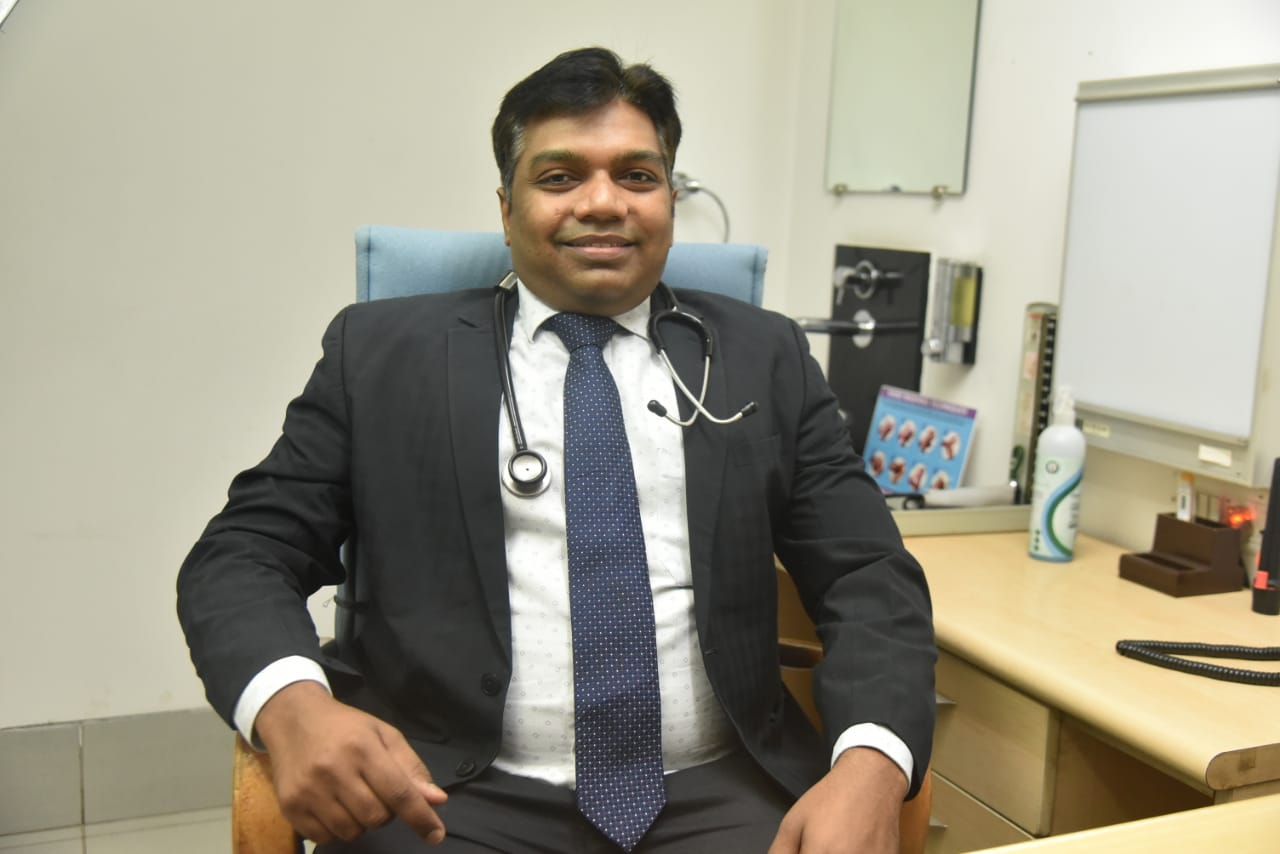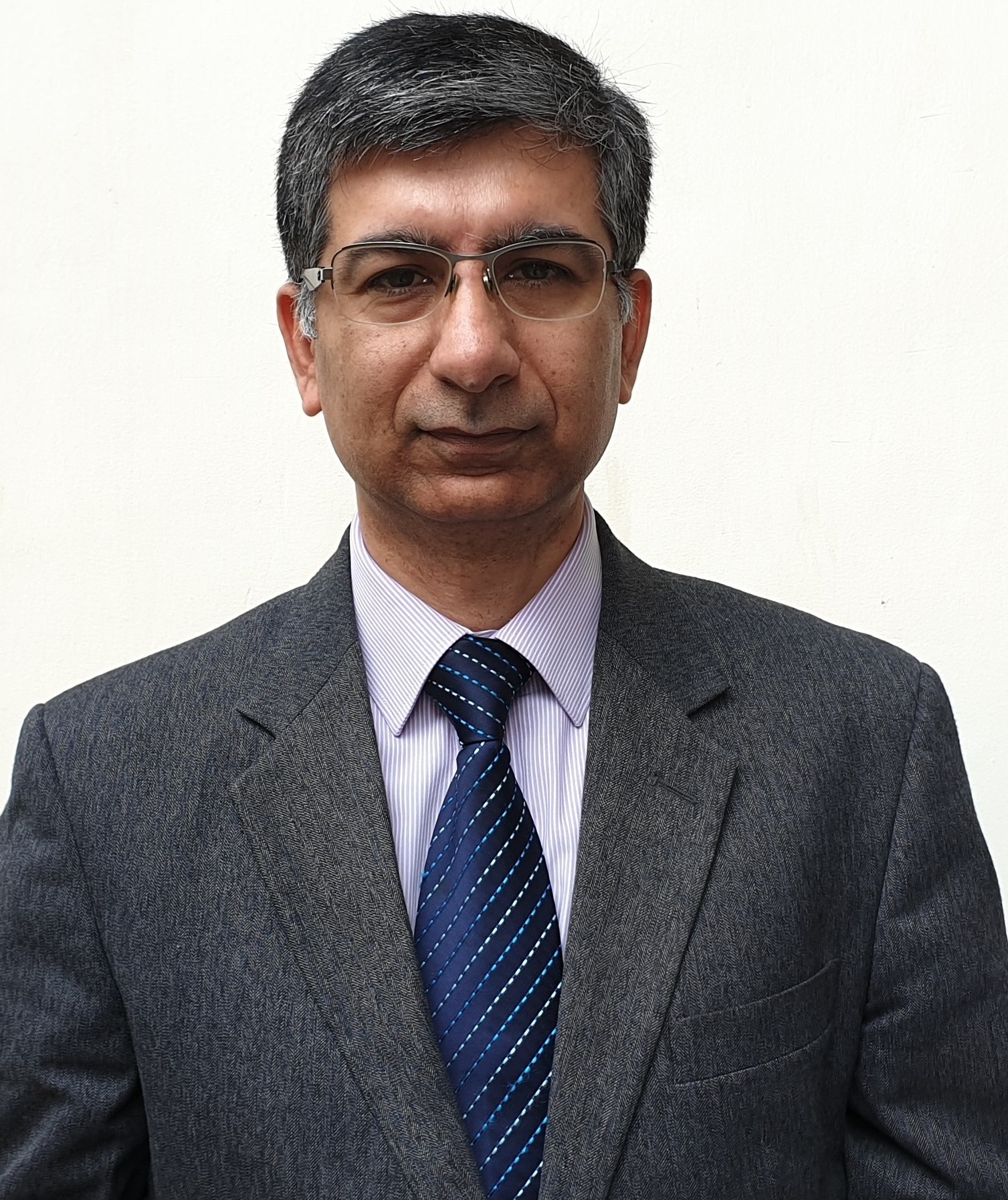The ACL Deficient Knee: Causes, Symptoms & Treatment Options

“Everyone with an ACL injury does not develop an ACL deficient knee. If developed, ACL deficiency can be effectively treated!”
An ACL (anterior cruciate ligament) injury involves a tear in one of your knee ligaments connecting the lower and upper leg bones. The ACL ensures stability of your knee. If an ACL injury is left untreated, you would not be able to control the knee movements effectively. Then the knee bones may end up rubbing against each other. This causes chronic ACL deficiency. The irregular bone movement may also destroy the cartilage covering the ends of these bones and may cause trapping and tearing of the menisci which cushion your knee joints. This may contribute to osteoarthritis.
If you have an unnoticed or undiagnosed ACL injury, it may develop into chronic or acute ACL deficiency. When this happens, you must not delay at all and opt for ACL deficiency treatment in Delhi at once. In most cases, treatment can successfully restore your knee stability and function. Then you can resume daily activities like before!
Table Of Contents
- What is ACL Deficient Knee?
- What are the symptoms of ACL deficiency?
- How is it diagnosed?
- Treatment options of ACL deficiency
1. What is ACL Deficient Knee?
An ACL ligament tear can happen during sports injury, road traffic accidents or even more commonly when the knee gets twisted in our routine life injuries such as slipping on wet floor, missing a step and falling, sometimes while dancing and so on. The common factor in all these injuries is a rotatory force pivoting the knee around the ACL ligament resulting in partial or complete tear of the ligament.
If the initial symptoms of pain and swelling are ignored and treatment is not taken then this injury remains undiagnosed , the ligament fails to heal and the injury becomes chronic and is called ACL deficiency. The knee becomes unstable with episodes of giving way, recurrent pain and swelling.
The main causes of ACL deficiency may include:
- Small to medium tears of your ligament
- A complete rupture of the ligament
- An avulsion fracture of your ligament where a section of the bone from the upper leg bone breaks.
- Sometimes there can be spontaneous degeneration of the ligament (mucoid degeneration)
In any of the above cases, your lower leg bone abruptly pushes onto the upper bone. This feels like knee buckling.
2. What are the symptoms of ACL deficiency?
ACL deficiency primarily causes instability in the knee joint. Your knee would often give out or buckle with swelling and pain. You may feel trouble supporting your body weight on the legs. ACL deficiency may also cause other symptoms like:
- Hearing or feeling a pop when the knee buckles
- Pain at the back and sides of your knee
- Knee swelling due to effusion (increased joint fluid) inside your joint
- Restricted knee movement due to swelling or pain or both
When you have ACL deficiency you may have difficulty in carrying out activities of daily living due to sudden pain or instability. You may not have a problem while walking but may find it difficult to run and jog or change direction.
If you have recurrent knee swelling, pain and/or buckling, or other signs as stated above, you must receive ACL deficiency treatment in Delhi without any delay. A delay can only worsen the condition and you may end up not being able to perform even the least knee-related movements.
The episodes of giving way create a grinding force inside the knee and lead to damage to the menisci and joint cartilage. A long standing ACL deficiency later on leads to symptoms of meniscal damage such as locking and pain and over some years can lead to loss of joint cartilage resulting in early onset osteoarthritis of the knee.
3. How is it diagnosed?
ACL deficiency is diagnosed as follows:
- Taking your medical history
Besides general health-related questions, you’ll be asked about the symptoms of your knee problem and whether you had an untreated knee injury.
- Checking for knee issues
Your knees will be checked for tenderness, swelling, strength, stability, and range of movement. A pivot shift test and Lachman test (which compares the extent of knee laxity) are done to check stability.
- X-ray
It’s done if your knee is swollen and in pain or the leg cannot bear your weight. The test checks for knee effusion (presence of blood), fracture or avulsion fracture.
Further imaging tests
- MRI
Most sensitive and informative investigation .It identifies an ACL tear,its severity and other issues like meniscus tears.
- CT scan
It detects any small fractures in the bones.
Observing fluid in the knee
If the knee is swollen, warm or red, an arthrocentesis (knee joint aspiration) may be performed. Fluid is eliminated from your knee joint using a needle.
Other tests
- Arthrometric testing
An arthrometer is used to measure knee laxity by applying force on the knee.
- Arthroscopy
An endoscope is inserted via one or multiple tiny incisions in the knee. This allows examination of the structures inside your knee joint like ACL and meniscus.

4. Treatment options of ACL deficiency
Physical rehabilitation
A physical therapist teaches exercises that could be done at home or under constant supervision. You may need to use a brace for stabilising the knee or crutches to not put weight on the knee. Physical rehabilitation treatment for ACL deficiency in Delhi aims to:
- Restore the stability and function of your knee.
- Strengthen the muscles around your knee.
- Protect the knee joint and ACL from any further injuries.
- Help you resume most of the normal activities which you could do before your injury. If rehabilitation is performed without surgery, your knee may not be stable during certain movements.
Medications
There is no specific medicine to treat ACL deficiency. Supportive medicines may be prescribed to reduce pain and nutritional supplements may be given to support healing of a partially torn ligament.
Surgery
Surgical treatment for ACL deficiency in Delhi involves ACL reconstruction. It is performed to replace your damaged ligament with a piece of tendon called a graft from a deceased donor or a healthy part of your knee. Surgery to treat an ACL deficient knee aims to:
- Restore regular or almost regular stability in the affected knee.
- Restore the level of function your knee could perform before its injury.
- Restrict the loss of function in that knee.
- Prevent degeneration or injury to other knee structures.
- Reduce pain.
After surgery, another rehabilitative course is needed. Successful ACL reconstruction by an experienced surgeon together with physiotherapy can generally restore the function and stability of the affected knee.
Most people will have effective results of surgery meeting all or most of its goals. Those who are engaged in sports or athletics may return to activity , as per the rehabilitation intensity.
Takeaway
Trust the doctor as he/she will choose the best kind of treatment according to:
- Your ACL tear falling under grade I, II, or III
- The time of the injury and the degree of knee stability
- Whether other sections of the knee are injured
- Whether you had other knee issues previously
- Your level of staying active
- Your overall health and age
J & B offers the best ACL deficiency treatment in Delhi with optimum aftercare at affordable cost from highly trained, skilled, and experienced doctors and physiotherapists. You’re assured to have successful treatment!
Our Best Bone Specialist & Best Joint Specialist Doctors in Gurgaon

Dr. Prince Gupta
MBBS, M.S (Ortho),
MCh Orthopaedics – USAIM
Contact No :
+91-9999965564
Email:
dr.princegupta@gmail.com

Dr. Anubhav Gulati
MBBS, MS Ortho
MRCS(1), Edinburgh
Contact No :
+91-8826612719
Email:
dranubhavgulati@gmail.com
Columbia Asia Hospital, Ansal Plaza Near Gol Chakkar, Block F, Palam Vihar, Gurugram, Haryana 122017
10 AM - 4 PM
Monday to Saturday
Sunday Closed
